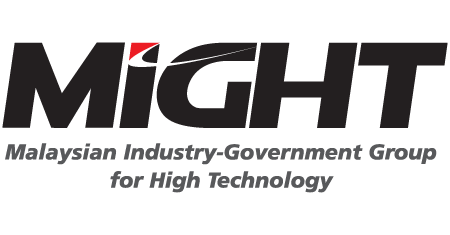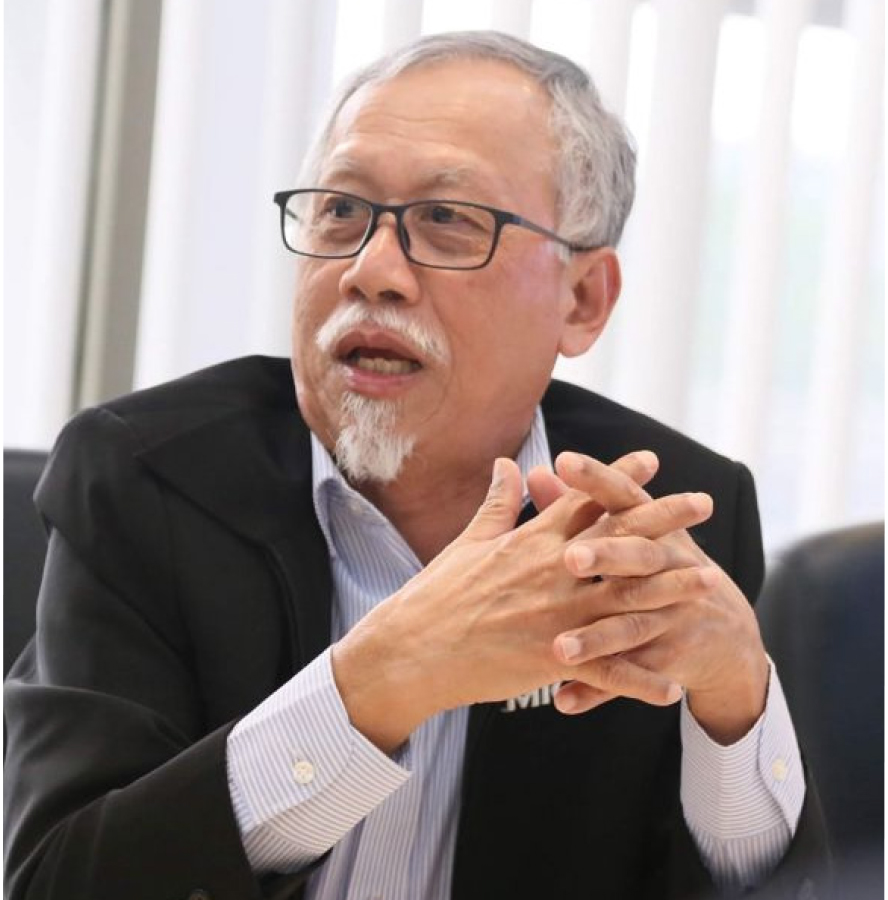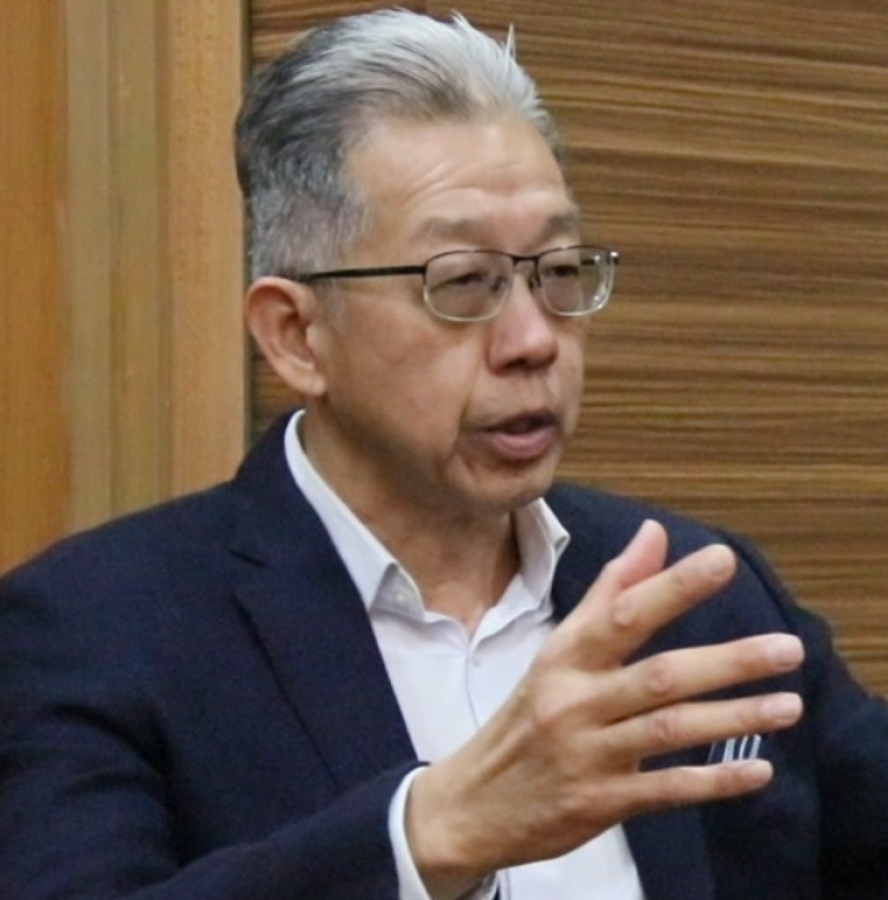While the ratio of government expenditure to Malaysia’s gross domestic product is forecast to decline by a total of 1.9% from 2023 to reach a new low of 20.75% in 2028, it remains a significant contributor to the nation’s economy.
Public procurement, while meeting many social and economic needs, is also an important policy tool for pushing innovation. Tan Sri Dr Ahmad Tajuddin Ali, Joint-Chairman (Industry) of the Malaysian Industry-Government Group for High Technology (MIGHT), cites the UK Innovation Strategy, saying that “by procuring more innovative solutions, the public sector can be a driver of innovative new ideas, providing innovative firms with the foothold they need to succeed in the market, fuelling the scale-up ecosystem and facilitating wider adoption of new tech services”.
Tajuddin observes, “Public procurement can create lead markets for innovative goods and services on a scale that makes R&D investments worthwhile for industry players and catalyses a private sector’s push for innovation while simultaneously meeting public needs.”
MIGHT has always emphasised a full ecosystem approach to industry development, with the ultimate focus of attaining and accelerating national competitiveness. These include institutional R&D funding, partnerships for industry growth, public sector procurement regulations, and private sector market expansion and innovation policies.
“These policies are not mutually exclusive; rather, they form an integral part of a mature innovation ecosystem. Increasingly, however, it is abundantly clear that we need to seriously consider the demand side of innovation to foster private sector product and process innovation. It is critical that this not be an afterthought.”
“‘Mission-oriented’ public procurement is an important innovation policy instrument and underscores the necessity for government participation in innovation,” he adds.
Strategic public procurement
Malaysia has put in place a planned procurement strategy for more than 30 years; the Offset Programme is one such example.
“In fact, MIGHT was founded with this goal in mind, formulating procurement strategies and fostering the offset programme in its early stages,” says Datuk Khalilur Rahman Ebrahim, Executive Chairman of Systems Consultancy Services and a member of MIGHT’s board of directors.
“The offset programme ensures that a percentage of the cost of obtaining products or services, particularly for larger projects, is reinvested in the country through knowledge transfer, investment or joint ventures. Thus, procurement acts as a strategic tool for improving future capabilities and competitiveness. With the correct model and implementation emphasis, it would work,” he adds.
While significant progress has been achieved over the decades, there is still plenty of room for improvement, with extended benefits to local stakeholders and increased cost-effectiveness of incoming foreign investments. Improvements are needed in the implementation of important industry objectives, particularly in strategically focused sectors or those that affect broad-based national security.
“PETRONAS is an example of a government-linked entity with a commendable vendor programme and maintains an extensive vendor list. One such success story is NDE Consultancy, a home-grown Kemaman-based company that specialises in non-destructive testing, which replaces reliance on foreign expertise,” Khalilur says.
“Furthermore, the societal ramifications are important. The expansion of existing technological capabilities has a multiplier effect domestically, fostering a strong network of economic activity in which money circulates within the local economy, in many cases providing a much-needed boost.”
The value inherent in that is that incrementally, it elevates Malaysia’s collective ability and competitiveness.
This is especially crucial with large investments in strategic projects. Rail transport infrastructure is one such example.
“Even project parcels awarded to local players, such as tunnel construction, should not be reduced to a brick-and-mortar job, with the tunnelling machines imported and tunnel design frequently done overseas. This presents no net gain in expertise or technology capacity except for a short-term cost advantage,” he says.
Competitiveness as the ultimate goal
Nevertheless, the use of public procurement as an innovation catalyst is not without its share of criticism. This may be against a perceived price preference that perpetuates a recurring pattern of constrained capacity and scale, which in the long run erodes competitiveness.
The supposed bias against international open markets is also sometimes viewed as protectionist measures and is often grouped together with technical obstacles to trade, including export taxes, quotas and tariff measures.
Dato’ P’ng Soo Hong, Managing Director of First Solar Malaysia and a member of MIGHT’s board of directors, puts it all down to remaining relevant in an extremely competitive global industry landscape.
“Every nation implements some form of procurement policy aimed at establishing a variety of end goals. Public procurement for domestic consumption and export-oriented growth policies, for example, are not divergent in their intended outcomes. They are both about navigating the challenging interplay of capacity, scale, pricing and economic competitiveness,” he adds.The ultimate end game is to ensure that local players can successfully compete against international contenders who, in the short run, often offer cost benefits.
“That the project economics make sense is a given as it serves no one’s interest if project costs are inflated such that they become no longer financially viable.”
“Our focus should be on how the government can partner with local businesses to achieve scalability. One could start with funding opportunities, followed by local demand creation and then on to expansion into foreign markets. Without proactive efforts, the market will remain limited, curtailing its potential,” says P’ng.
Amid increasingly challenging circumstances, opportunities still abound. The rise of electric vehicles (EV) as the new frontier is one such possibility. This leverages capabilities developed through Malaysia’s successful electrical and electronics (E&E) industry. In engineering solutions, for example, the E&E industry has transformed small enterprises into large corporations, boasting extensive engineering skills and technical competency in product development, with some conducting their own R&D.
“In the EV ecosystem, the battery, storage, inverter table and racking systems can all be sourced locally. However, cost remains a challenge. It’s a chicken-and-egg situation. Without providing them the opportunity, we can’t bring down costs due to a lack of scalability. Thus, by fostering these opportunities, our businesses can thrive,” he adds.
Khalilur agrees. “If such chances are not created, we will be left with little more than assembly tasks, akin to the proverbial screwdriver. What we genuinely want is to advance these roles into design and engineering positions, promoting the development of competencies that would position Malaysia as a formidable player and competitor in the global market.”
“These, however, must be carefully monitored, as rogue companies may well turn it into a trading exercise. There are many good models to emulate where technology is tracked, monitored and analysed. In the wrong hands and not sticking to the desired outcome can be very damaging to the whole exercise,” he concludes.
Source: https://theedgemalaysia.com/content/advertise/might-pushing-public-procurement-as-an-innovation-policy



